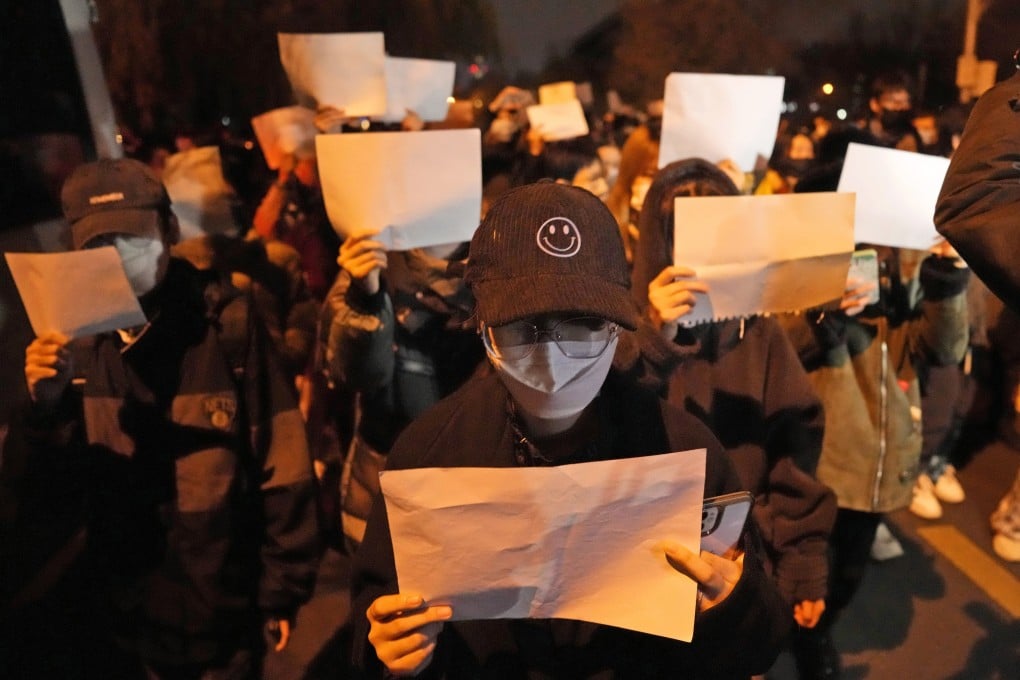Why China’s lockdown protests pose an unprecedented challenge to Beijing
- Last weekend’s demonstrations are a sign of growing public discontent over Beijing’s Covid controls but also pose a direct challenge to the authorities
- A deadly fire in Xinjiang marks a turning point in public opinion and has crystallised people’s fears over being locked in their homes, analysts say

While local protests in China over environmental, labour and land disputes are not uncommon, the rare wave of blank-paper protests that spilled across China’s wealthiest cities – all targeting President Xi Jinping’s zero-Covid policy – represents a challenge of the type the country’s leaders have not faced for decades.
The protests erupted last weekend after a fire at a residential block in Urumqi, the capital of Xinjiang, claimed 10 lives.
University students and angry citizens staged vigils on campuses and took to the streets in more than 10 cities – some holding blank sheets of paper to protest against censorship or shouting inflammatory slogans rejecting lockdowns and endless PCR tests, while some called for constitutional reform and regime change.
Although things appear to have quietened down since last weekend – and some cities have started easing their controls – analysts said the size and scale of the protests meant Beijing should not underestimate their political implications and give a clear signal about how and when the zero-Covid policy would end.
“Given how the party is centred on [Xi] now, this moment is a test of his leadership,” said Dali Yang, a political scientist at the University of Chicago.
Xi, who has emerged as China’s most powerful figure since Deng Xiaoping, has proudly claimed ownership of Beijing’s efforts to contain the pandemic.